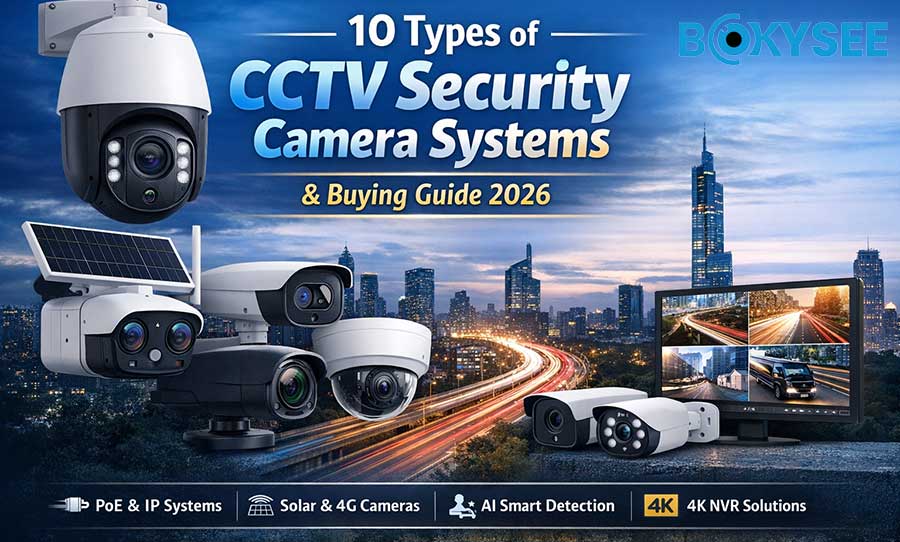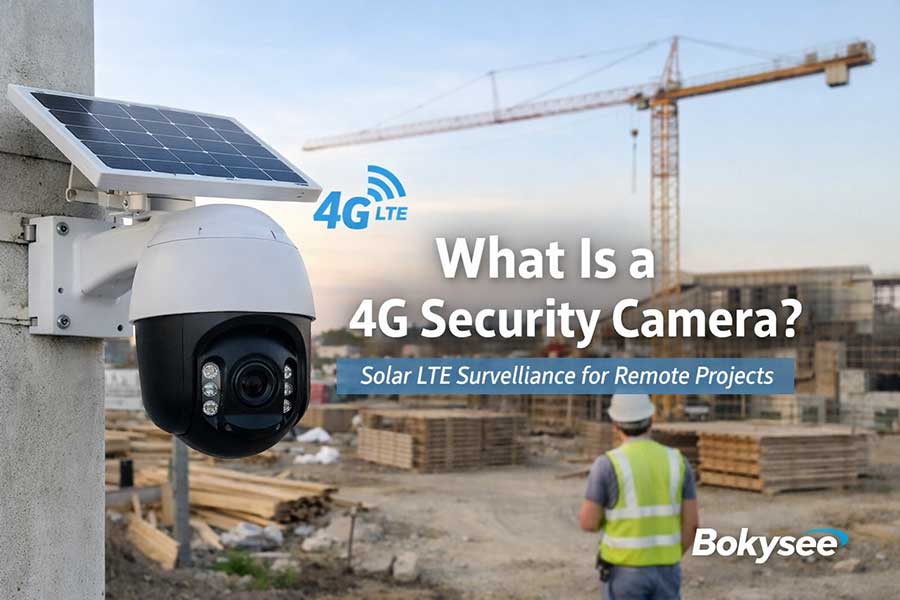Introduction
Living in an era where security and surveillance are the need of the hour, IP camera security system has completely changed the way we monitor and secure our surroundings. They’ve revolutionized modern surveillance, offering high-resolution, remote access and advanced features. This article reveals what IP cameras are, their importance, specifications, advantages and much more. So, let’s set on this journey to understand these cameras.
What is an IP Camera?
In its simplest form, an IP camera, whose ‘IP’ stands for Internet Protocol camera, is a type of digital video camera that receives and sends data through a computer network. In contrast to the analogue cameras of traditional nature, the IP camera security system converts both video and audio data into digital signals so that they can be easily accessible over the internet. This conversion of data from an analogue form into a digital package enables all sorts of advanced features which are challenging to get in analogue cameras.
Various Types of IP CCTV Cameras
Types of these cameras cater to different requirements. There is a plethora to select from, from dome cameras to bullet cameras, PTZ (Pan-Tilt-Zoom) cameras to fixed cameras. Your selection will depend on factors like where it would be installed, your requirement for monitoring and, of course, and your budget.
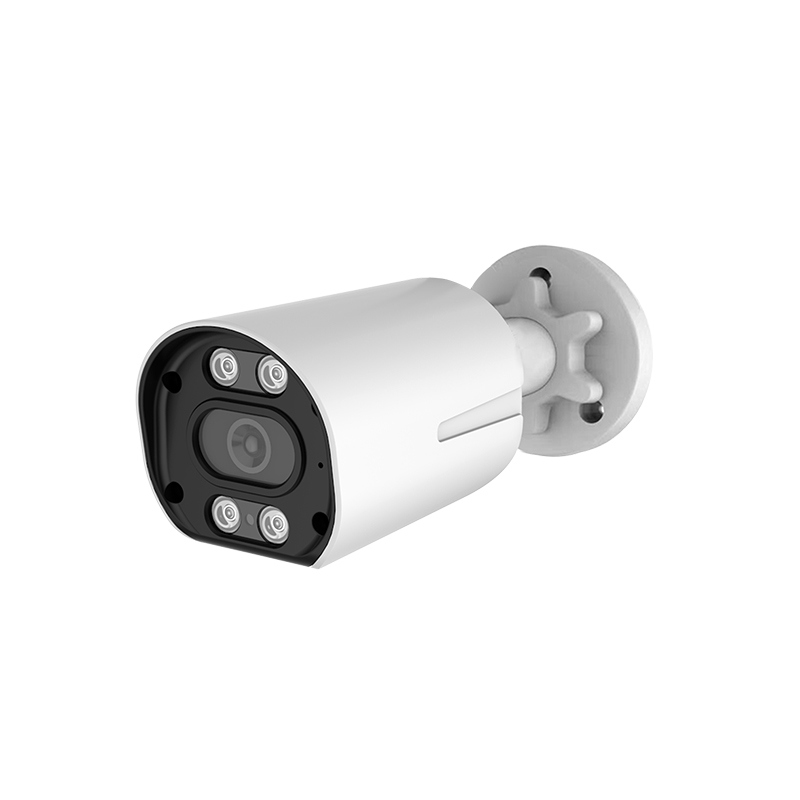
Key Features of Our CCTV IP Cameras
Material and Build
Our CCTV IP Cameras are made out of a solid frame, which includes a metallic front cover as well as reliable metallic bracketing. This is completed with a strong plastic back cover that ensures the overall camera’s durability.
Resolution Options
Resolution is one of the elements that describe an IP camera. Our cameras have a range from 2.0MP to 8.0MP, which means you get clear and clear images and videos.
Lens Specifications
The 3.6MM lens comes with our cameras and is suitable for most surveillance applications.
Infrared LED arrays for night vision
Our cameras come with a 2 Array IR LED, which is best suited for night vision. The infrared LEDs light up the place, enabling monitoring in complete darkness.
Waterproof rating
Our cameras are waterproof and rated at IP66 for outdoor use, so it is always weatherproof. Rain or shine, your security remains uncompromised.
Day/Night Modes (Color/BW)
Our cameras have both B/W and color modes with intelligent day-night switching. So, image quality is better in any lighting conditions.
Power Options
Depending on the situation, you can power your camera with a Power over Ethernet (POE) or DC12V-1A energy source.
Audio capabilities
You can select audio abilities according to your specific needs. This helps in better hearing of the surroundings and even talking to it.
Onvif Support
Our CCTV IP Camera System is Onvif compliant, which is an industry-standard for IP-based security products. That means that they work in perfect tandem with other Onvif-compliant devices.
Sensor Technology
The most important feature of our cameras is the CMOS sensor technology, which promises to deliver spectacular picture quality and low power consumption.
Video Encoding
Our cameras support both H.264 and H.265 video encoding, efficiently compressing video without compromising image quality. Dual streams are also supported to allow different storage or viewing options for the same scene.
Night Vision Options
Our cameras support multiple night vision options in smart, infrared and full-color modes for adaptive to different scenarios.
IR Range
Our cameras are great for long-distance night vision to monitor your property even in expansive places, with a maximum of 20 meters of IR distance.
Best Wide Dynamic Range (WDR) Support
Our cameras use Digital Wide Dynamic Range (WDR) to get the best quality image in high-contrast lighting scenes.
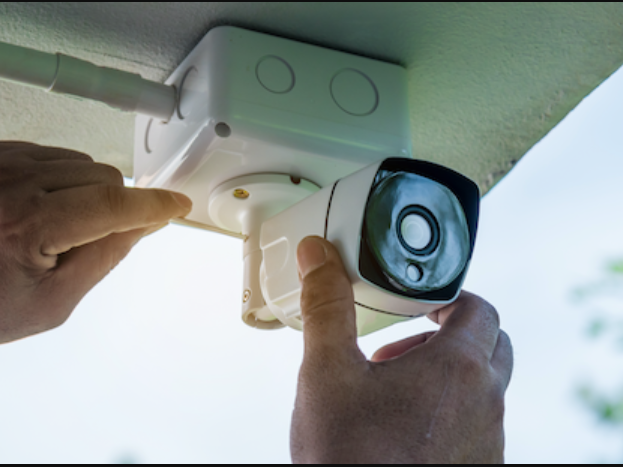
Benefits of CCTV IP Camera System
Better Quality Image
These cameras have a better quality image. With higher resolutions and digital technology, every detail is captured with precision.
Remote Access and Monitoring
The most significant advantage of IP bullet cameras is the fact that you are able to watch your home from anywhere. Whether it’s at home, in the office or even while on vacation, you will be able to get onto your camera feeds over the internet.
Integration with Smart Home Systems
IP camera systems can be integrated with other smart home systems. This leads to a house that is essentially automated. You can experience the equivalent of a self-operating home, especially if your lights and appliances are connected to motion sensors. IP camera security system is perfect to integrate with smart home automation. Take alerts and control your cameras right from your smartphone or other smart devices.
Enhanced Security Features
In addition to encryption, these cameras usually have advanced security features such as motion detection and alerts. These add the extra protection to your property.
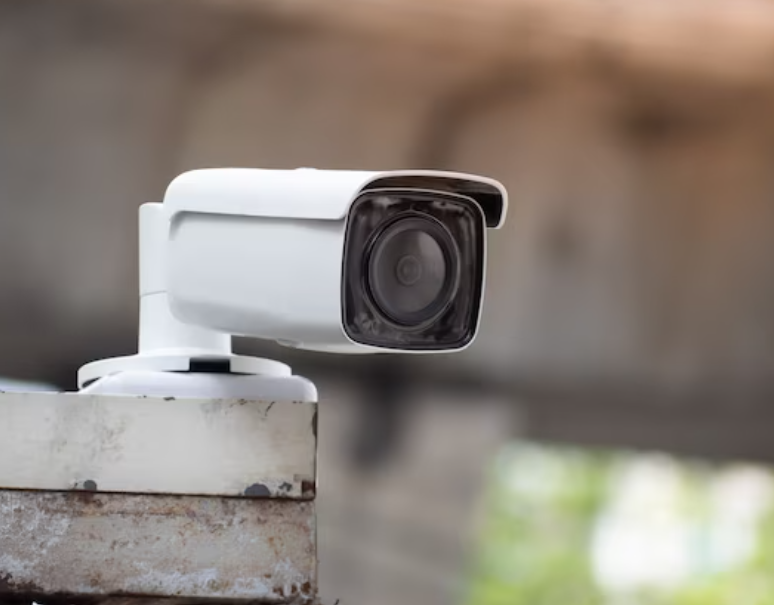
How to Choose the Right IP Camera for Your Needs
Assessing Resolution Requirements
When selecting an IP camera, one must consider the resolution that suits their application. The resolution, often measured in megapixels (MP), determines the sharpness or amount of detail put into your video. Higher resolutions make better sense for larger spaces or locations, with minute details being important.
Considerations for Lens Choice
Another major factor in choosing an IP camera for sale is the lens specification. The 3.6MM lens is suitable, versatile, and works fine in almost all scenarios. But if you need focal lengths at specific levels, consider cameras with interchangeable lenses for customization.
Night Vision Needs
You can set your night vision needs as per the area you want to keep a watch on. If there is total darkness on the premises, then definitely go for infrared (IR) LED cameras. In case color details are essential during nighttime, opt for full-color night vision.
Power Supply Options
Select the power options of the IP camera. POE (Power over Ethernet) is handy because data and power can be transmitted via one cable. On the other hand, DC12V-1A seems a backup for places without POE infrastructure.
Audio Features (Optional)
Audio is good for two-way communication or audio surveillance. Check if this function will be helpful to you. Most IP camera manufacturer offers this feature in customization.
Compatibility and Onvif Support
Ensure your IP camera is compatible with your existing security system or future expansions. Onvif support allows interoperability with other Onvif-compliant devices, creating a seamless and integrated security network.
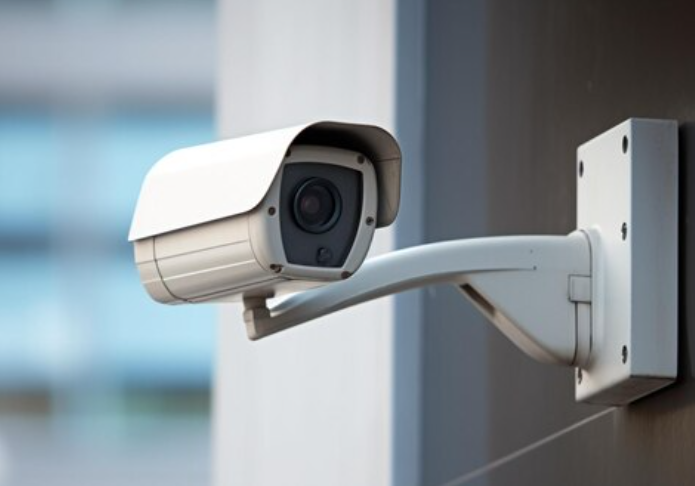
Use Cases for IP Cameras
Home Security
They are an excellent choice for home security. They provide remote monitoring, have the ability to detect motion, and can be accessed from anywhere to monitor your property.
Business and Commercial Use
These cameras offer additional advantages for businesses, including enhanced surveillance, improved employee safety, and better protection of assets. Scalability of the IP camera systems is also prevalent in commercial applications.
Industrial Sites
In addition, they are essential for process monitoring and safety in industries. They help to beef up the security by eliminating unauthorized access.
Public safety and law enforcement
CCTV IP Cameras are extensively used in traffic monitoring and law enforcement. For instance, the traffic authorities use them to monitor traffic flow on their roads, detect when there is a problem or an accident, and enforce hundreds of traffic laws that prevent accidents on these roads.
Public Safety
These cameras find great use in law enforcement agencies to maintain public space security and safety prevent crime, and collect evidence. These cameras help keep the environment free from insecurity. We offer the best IP camera for sale.
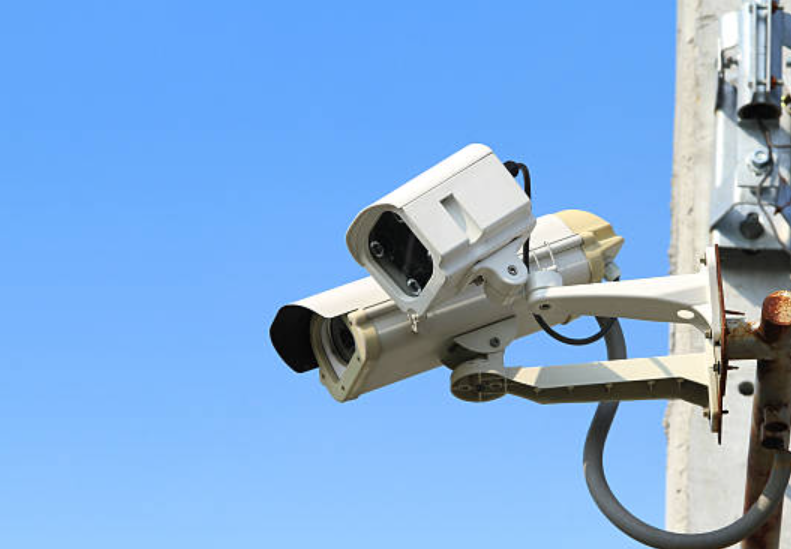
Installation and Setup of CCTV IP Cameras
Mounting the Camera
Good monitoring calls for the proper placement of the camera. Make sure your camera is well-mounted and has a clear view of what you want to be monitored. The proper angle and position are essential for it to work well.
Network Configuration
Setting up your network for the IP CCTV cameras involves connecting them to your router and setting up IP addresses while ensuring proper communication between the camera and your viewing devices. This will provide remote access and monitoring features.
Remote Access and Monitoring
This lets you view the camera’s feed remotely on your smartphone, computer, or tablet. The settings may include port forwarding and application or software created by the IP camera manufacturer.
Maintenance and Troubleshooting
Regular Maintenance Tips
Regular maintenance is essential for the durability and functionality of your CCTV IP Cameras. This includes periodic cleaning of the lens, making sure there are no loose connections, and updating firmware periodically to avoid losing out on any feature enhancements and security fixes.
Common Problems and How to Solve Them
These cameras might come up with issues like connectivity, degradation of image quality or false alerts. Troubleshooting them monthly and resolving these issues will save a lot of your time as well as frustration.
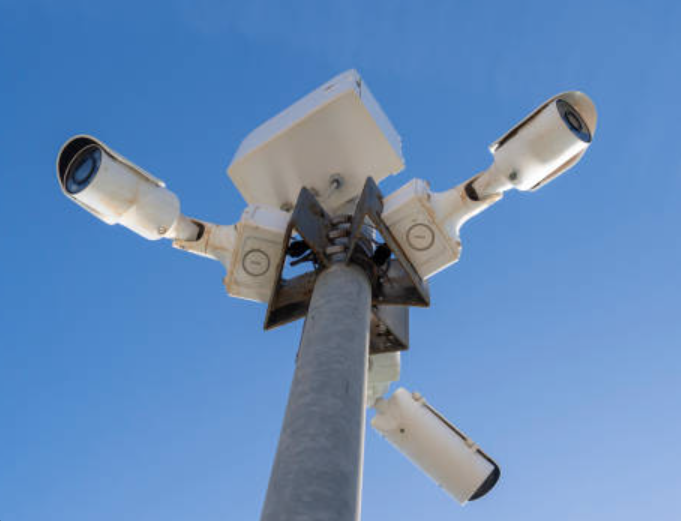
Future Trends in IP Camera Technology
Advances in Resolution
In the race for resolution, the next generation of IP cameras can outgrow 8.0M and have more detailed images, offering more clarity.
AI and Machine Learning Integration
These cameras can increasingly integrate artificial intelligence and machine learning for advanced features like facial recognition, object detection, and improved analytics.
Cloud-Based Surveillance Solutions
Cloud-based storage and management is trending. It eases the task of data storage and remote access, hence making surveillance systems more user-friendly.
Conclusion
To conclude, IP cameras have revolutionized the landscape of surveillance and security. From the amazingly sharp hi-definition images all the way to exceptional night vision capabilities, the various features provide surveillance and protection that is second to none. As such, individual needs will ultimately define which IP camera is best suited for choice since they are versatile enough to fit across a wide range of applications.
Advancements in technology will usher in more robust and innovative IP cameras to make our world safer and more secure. So, be it your home, business establishment or a public space that you want to protect – think about the versatility and powers offered by IP cameras for surveillance.


